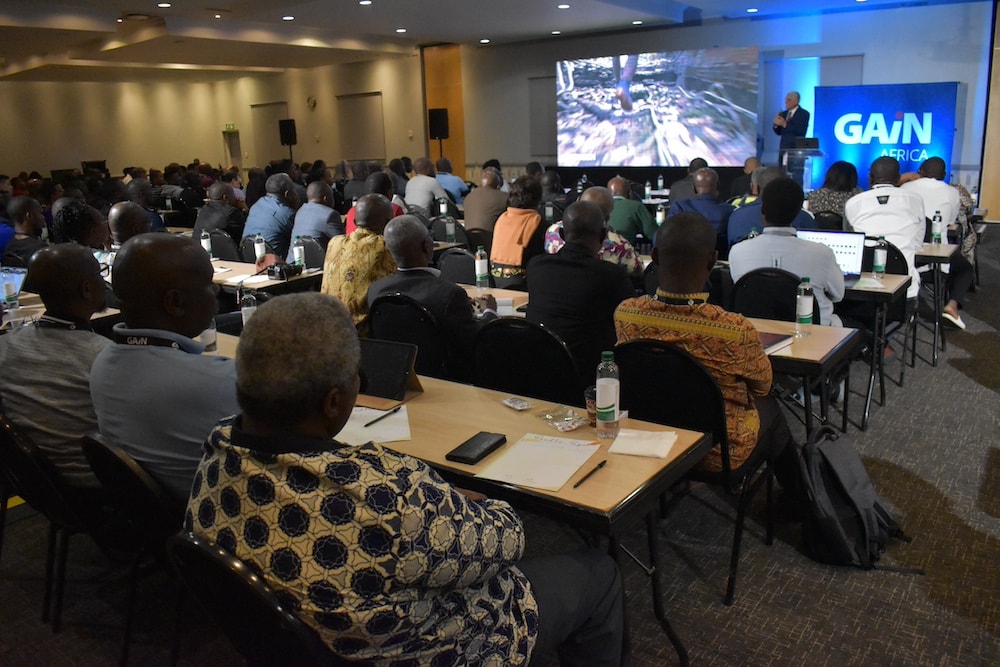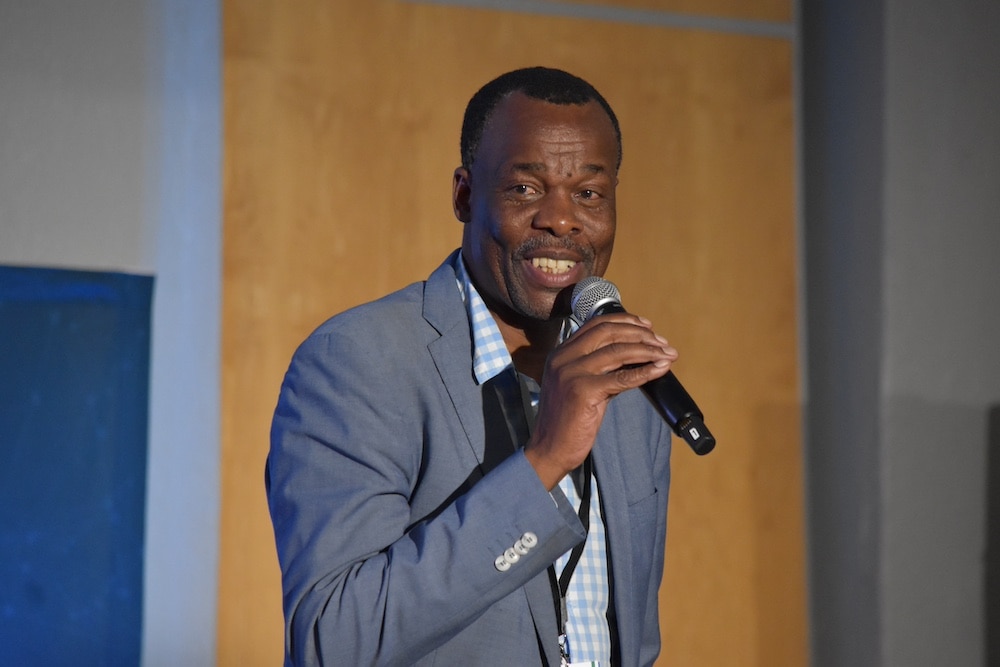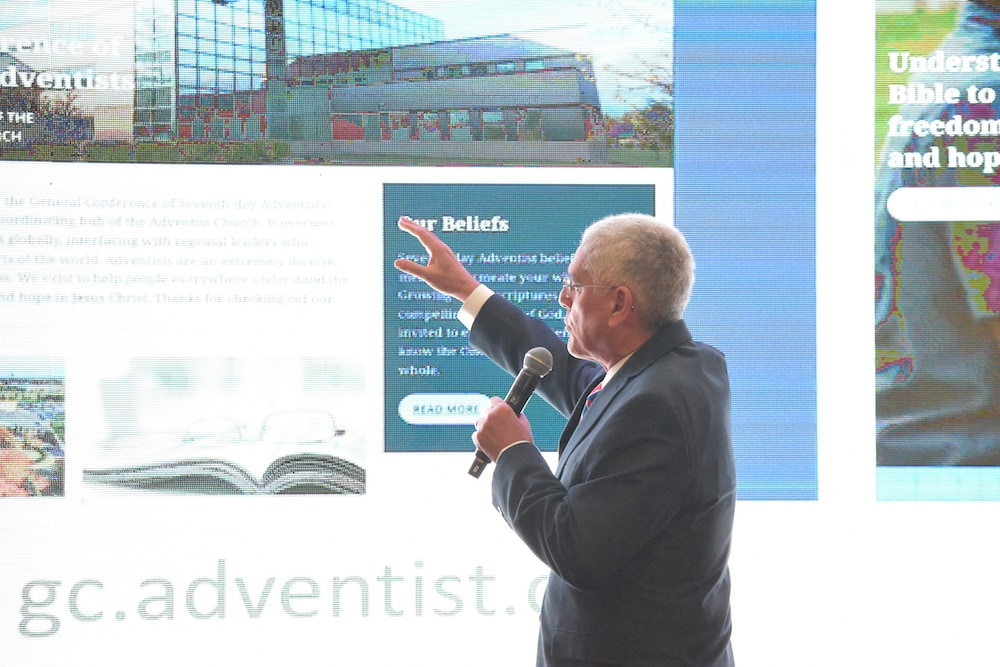Africa Continent-wide Event Connects, Motivates Communicators for Mission

The Global Adventist Internet Network (GAiN) Africa Conference opened on December 6 in Johannesburg, South Africa. [Photo: Marcos Paseggi, Adventist Review]
Adventists serving in church media meet in South Africa for the 2023 GAiN Conference.
December 11, 2023 | South Africa | Marcos Paseggi, Adventist Review
Two hundred and forty Seventh-day Adventist communicators and church administrators have gathered in Johannesburg, South Africa, for the 2023 Global Adventist Internet Network (GAiN) Conference. The event has brought together those serving in radio, television, print, and digital ministries across the African continent December 6-9 for training, networking, discussion, and inspiration.
“This is a special occasion, and we don’t take things for granted,” Southern Africa-Indian Ocean Division (SID) president Harrington Akombwa told the communicators gathered for the opening session on the evening of December 6. “We welcome you and thank you for bringing this meeting here, so we can see what God can do for us and through us.” The SID headquarters are in nearby Pretoria. The other two major regional headquarters are in Abidjan, Côte d’Ivoire (West-Central Africa Division) and Nairobi, Kenya (East-Central Africa Division).

Harrington Akombwa, president of the Southern Africa-Indian Ocean Division of the Seventh-day Adventist Church, welcomes participants to the 2023 GAiN Africa Conference. [Photo: Marcos Paseggi, Adventist Review]
General Conference (GC) communication director Williams Costa Jr. delivered the opening address on December 6. Costa briefly shared how the Communication Department and its website moved from a corporative-centered to a more mission-centered model. “We believe the Communication Department exists to support the mission of the church,” Costa told his audience.
Costa then highlighted the key role of Adventist communication to call people to get to know Jesus and His will through the study of His Word. He also explained the rationale behind the Communication Department’s efforts to share reports and stories to inspire members and non-members alike.

Noel Sibanda, communication director of the Southern Africa-Indian Ocean Division, greets the 240 Adventist communicators and leaders who came from across the African continent. [Photo: Marcos Paseggi, Adventist Review]
Costa also emphasized the missionary goal of anything Adventist communicators do, and detailed some of the ways they are doing that through news, digital media, and even feature films. “We need to inspire, we need to motivate, we need to use all possible ways to share hope with people,” he said.

GC communication director Williams Costa Jr. shares how the Communication Department of the General Conference moved from a corporative-centered to a mission-centered model. [Photo: Marcos Paseggi, Adventist Review]
In the second part of the opening session, Google engineer and Adventist church elder Emmanuel Arriaga discussed “Generative Artificial Intelligence [AI] for Ministry.” He detailed some of the technical aspects of the new AI tools that have been developed since the launch of ChatGPT in November 2022. They include large language models, “a type of artificial intelligence that uses deep learning techniques and large data sets to understand, generate, and predict new content.”

Most GAiN Africa participants come from the three divisions of the Adventist Church in sub-Saharan Africa. [Photo: Marcos Paseggi, Adventist Review]
Arriaga then moved to emphasize what is behind some of these developments and their implications for Adventist ministry. He mentioned that the new tools help to transform the way ministry functions, aid in personalizing communications to community members, and analyze large amounts of data and uncover patterns.
He also highlighted how important it is for the Adventist Church to learn how to assess and use new tools for mission. “There is an intense competition for the hearts and minds of the world today, and if we are going to teach the love of Jesus, we need to steer how we work and find the most effective ways of fulfilling our role,” Arriaga said.
At the same time, Arriaga acknowledged, there’s an inherent risk in AI technology such as ChatGPT, and experts are just beginning to comprehend some of its implications. But AI can be a powerful tool if used correctly, he emphasized.
Arriaga singled out, for instance, the use of AI in research. “It shouldn’t be used as the primary source,” he said. “But it’s useful to identify potential areas of focus on a specific topic. This is powerful because sometimes [the researcher] doesn’t know where to start. Generative AI can give you enough to get you started and help you to save time, organizing data that would take days and weeks to process,” he explained.
Overall, Arriaga said, and despite the challenges, the new AI tools can help transform Adventist ministry in multiple ways. They can be powerful assets for mission.